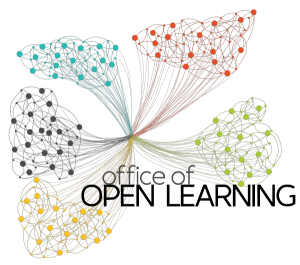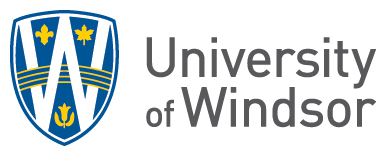Project Acknowledgments
This resource was first created for the Schulich School of Medicine and Dentistry at at the University of Western Ontario by Selinda Berg, Alex Levesque, and Scott Cowan. In 2020, the module was revised with the valuable input of Anastasia Yian Liu and the OpenMeds group at the medical school.
The current adaption was created in partnership with the University of Windsor’s Leddy Library and Office of Open Learning, in consultation with Trans Wellness Ontario. This resource is intended to be a starting point for further development, with the goal of evolving and changing the content in alignment with the most accurate and up to date knowledge and representation to ensure inclusive health care for the LGBTQ+ community.
This project is made possible with funding by the Government of Ontario and through eCampusOntario’s support of the Virtual Learning Strategy. To learn more about the Virtual Learning Strategy visit: https://vls.ecampusontario.ca.
Situating ourselves
Selinda Berg (she/her) identifies as a queer, cis-gendered, white woman. Selinda had extensive experience navigating the health care system when she and her former partner navigated the medical care associated with the conception, pregnancy, and delivery of their son. Navigating systems as a two-mom family continues to pose challenges. Selinda was an instructor at the Schulich School of Medicine for more than a decade. Throughout this work, she was deeply passionate about encouraging students to consider ways of creating a more inclusive health care environment. In addition to teaching, she also had the opportunity to learn from her students, some of whom contributed greatly to the evolution of this resource. Selinda hopes that by making this resource open that the content can further evolve and strengthen through the input and contributions of others passionate about inclusive health care environments.
Scott R. Cowan (he/him) identifies as a gay, cis-gendered, white male. As a librarian and researcher, his research has focused on the information needs, and access to information, for the LGBTQ+ community and anti-oppressive pedagogies. Based on his own experiences with healthcare professionals after coming out, and the stories of his friends in the queer community, he was excited to advise on the original project and help with the creation of this resource.
Ashlyne O’Neil (she/they) is a white settler who identifies mainly as queer, since it’s so hard to summarize one’s identity with a single phrase. They have adopted “queer” as a personal and political move against the gender binary and limited scope of LGBTQ+ labels. When pushed to reflect on how they identify according to the split-orientation model described in the glossary, Ashlyne would describe themself as pansexual and homoromantic. As a learning specialist in the Office of Open Learning, Ashlyne offered project management support for the project, ensured accessibility, and contributed to the design of the Pressbook and adaptation of content and scenarios.
“I was super happy to be brought into this project, and have very much enjoyed working with our collaborative team throughout this process! Given my own experiences in the healthcare system, and the stories I have heard from others, it is abundantly clear that resources such as this one are absolutely necessary. I don’t think our negative experiences are always related directly to physician prejudice, but rather failures in health care policies, and a lack of such information early in providers’ education.”
Acknowledgment of the Indigenous Keepers of this Land
We would also like to acknowledge the history and guardianship of the place in which we were able to complete this project. As white settlers in the Windsor-Essex community, we live and work on the traditional lands of the Three Fires Confederacy of First Nations, comprised of the Ojibwe, the Odawa, and the Potawatomi Peoples.
- You can read a brief history here
- Treaty 35 – Huron-Wendat (LaSalle/Amherstburg)
- Treaty 2 (Mckee Purchase)
We also recognize that the country now known as Canada was built on stolen African and Black labour and resources, and that this history has been whitewashed and erased throughout our collective memory.
(noun)
A way of conceptualising experiences of attraction wherein romantic and sexual attraction are two separate and distinct entities that may or may not align within an individual. This model says that people can have different sexual and romantic orientations, and it is understood that typically these two things together are being referenced when someone says “sexual orientation”.
For example, a person may identify as bisexual and homoromantic, meaning they are sexually attracted to multiple genders, but only romantically attracted to the same or similar gender to their own.





